If you haven't heard of Brandon Stanton, and the Humans of New York, you are definitely missing out. Through social media platforms such as Facebook and Instagram, HONY has been inspiring millions of people around the world. Over the last week and the next few weeks, HONY will be posting stories gathered from the Pediatrics Department of Memorial Sloan Kettering Cancer Center.
Brandon describes the stories as "war stories." We often hear the fight of cancer of several people in our lives, and despite the tragedy of that, the tragedy of pediatric cancer is fairly unique and far more painful.
The series highlights patients, families of patients, doctors, nurses and all the thoughts and stories that bring them together in the hospital. "This is the story of humanity’s bold response to the greatest injustice of nature. And as we learn these stories, we’ll be raising money to play our own small part in the war," says Brandon. Beyond that, each and every picture has prompted several other people to share their own stories, to donate money, and provide words of strength and empathy to the subjects of the pictures.
As HONY shares these stories, he hopes to raise money for the research and care put into the patients. So far he has raised arund $350,000 from 10,000 people. If even 1 percent of his following make donations, he can raise around $6 million. The children that come to Memorial Sloan Kettering Cancer Center are usually the ones who are out of options, and the doctors have to invent new ones. These inventions are not made easy, and are made by small teams of researchers on very tight budgets.
Every dollar counts, so please consider being part of this positive effort. You can donate on the following link: https://www.generosity.com/community-fundraising/let-s-help-dr-o-reilly-fight-pediatric-cancer.
Check out some of the stories HONY has shared so far:
1.
“Twelve thousand kids per year get cancer in the United States. But the extraordinary thing isn’t that cancer happens. The extraordinary thing is that cancer doesn’t happen more often. Every human life begins with a single cell. Trillions of cells will form from that single cell. During this process, the DNA will rearrange itself hundreds of times to form all different types of cells: muscle, nerve, bone, blood, connective tissue. If you look at these cells under a microscope, each one has special properties. They all have codes that tell them exactly what to do and exactly when to stop doing it. The complexity of this is extraordinary. There are numerous fail-safes at every level to prevent mistakes. How is it possible that it ever works correctly? There are trillions of chances for something to go wrong. God, it’s unbelievable. The longer I study cancer, the more I’m in awe of the healthy child.”
2.
“It’s been 12 hours a day, six days a week, for the last 30 years. My goal during all these years was to help all I could help. I’ve given 200 percent. I’ve given transplants to over 1,200 kids. I’ve published as many papers as I could. I’ve contributed to some major achievements here. I feel happy because I've done my part. But now I’m almost finished. It’s time for the young people out there to finish the job. They’re going to be smarter than us. They’ll know more. They’re going to unzip the DNA and find the typo. They’re going to invent targeted therapies so we don’t have to use all this radiation. Me? My goal for the remainder of my life is to not be useful. I want to learn Portuguese. I want to play the guitar. I want to eat, drink, and enjoy the company of my friends. I recognize these are selfish things. But at some point we must treat ourselves as well.”
3.
“The caretakers play a crucial role, but there’s no way to predict how a parent will react to this. Sometimes they are the best helpers. They come in wanting to win. They say, ‘We’re going to beat the crap out of this thing.’ And that positive attitude flows down to the child. ‘I can’ becomes ‘we can.’ But sometimes the parents give up before treatment begins. You see it in their eyes. The battle is lost before we start. They say ‘I can’t,’ and that becomes ‘we can’t.’ The child becomes defeated and that hurts us. Because the child is the captain of this team and we need our captain to be strong. But I’m not judging these parents. They are experiencing the toughest thing a human can go through. On a scale of zero to death, this experience is right next to death. So it’s not fair to judge a person’s response. And there’s very little we can do about it. It’s almost impossible to change someone’s attitude. Because there’s never one reason that a person feels defeated. There are twenty or thirty reasons. People bring their entire lives with them into this hospital. We can provide encouragement. We can say, ‘Things will get better soon.’ But we can’t change someone’s entire life.”
4.
“I’ve thought about what I would say if I could go back in time, and talk to myself before I got cancer. I’d say get ready to not be who you are right now. And get ready to deal with a lot of disappointments and pain. And just keep strong. And never give up. And don’t lock yourself in your room if you get sad or angry. Because nobody can help you if you’re in your room and the problem will get worse. And stop fighting with your brothers and sisters. Because you’re really going to need them soon and they are going to help you so much. And keep watching sports. Because those are really going to cheer you up.”
5.
“The absolute best thing in the world that can happen to me is telling a parent that their child’s tumor is benign. I live for those moments. And the worst thing that can happen to me is telling a parent that I’ve lost their kid. It’s only happened to me five times in thirty years. And I’ve wanted to kill myself every single time. Those parents trusted me with their child. It’s a sacred trust and the ultimate responsibility is always mine. I lose sleep for days. I second-guess every decision I made. And every time I lose a child, I tell the parents: ‘I’d rather be dead than her.’ And I mean it. But I go to church every single day. And I think that I’m going to see those kids in a better place. And I’m going to tell them that I’m sorry. And hopefully, they’ll say, ‘Forget it. Come on in.’"
6.
“If there’s a chance then it’s worth a try. Even if nobody else wants to try, I will try. A lot of these kids have exhausted all their options. They may have had several surgeries elsewhere and it’s either hospice or one more try. My colleagues are amazing. So I know that if I can get this lump out, the child has a chance. I view each of these kids as my own. My team is amazing but I take 100 percent responsibility for the outcome and I don’t like to lose a drop of blood. So it’s a lot of stress. I have four grafts in my heart. My neck muscles are always tense. Some of these surgeries have probably taken years off my life. But tumors kill kids in very horrible ways. So if there’s a chance, I will try.”
7.
“I think it might be easier for children because they don’t understand what can happen. They don’t know the ‘what ifs.’ She can handle how bad it is because she doesn’t know how bad it can get. All she worries about is playing. You can’t even tell when she’s feeling bad. She uses her IV pole as a skateboard. She skips through the hall and sings Dora. She climbs rocks and rides her bike. I always have to remind her that she’s sick. I’m always telling her that we can do more things once she feels better. And whenever her friend has a birthday party, she tells me: ‘I’m all better now!’”
8.
“I cried all weekend when she was diagnosed. But I made sure that I ducked into other rooms so nobody would see me. It’s a little tougher being a man because you feel like you’re supposed to be the rock. You want to hold yourself together so the family can lean on you. I’m used to always being in control. I own my own business. I’ve always been the ‘go-to guy’ for everybody else. But I have no control over this. And that’s tough. I just have to watch my daughter suffer and there’s nothing I can do about it.”
9.
“I feel like it’s draining us. Both emotionally and physically. Her immune system is so depleted that if she gets sick, it could kill her. So I’m afraid all the time. And that fear tends to keep me on the attack. I can be short tempered with my husband and my boys. I feel like if I scream, everyone will stay away from her and she’ll be OK. My husband and I have been fighting a lot. We’ll snap at each other over little things like the chores or giving her medicine. Before the diagnosis, we were always sure to talk things out before bed. But now we’re both so stressed that we hold stuff in. He doesn’t know how I’ll react. And I don’t know how he’ll react. So we just choose not to discuss our problems. This Saturday we went on our first date since the diagnosis. It was only two hours at an Italian restaurant, but it was nice to finally talk. We acknowledged that we’ve been on edge. And we apologized to each other.”
10.
“Some of my colleagues tell me they can’t imagine working in pediatrics. Millions of years of evolution have conditioned us to respond to the cries of a child. We can’t bear to see a child in pain. And once we have children of our own, it makes the work even more difficult. We all handle it differently, but everyone cries at some point. Not in front of the patient, but everyone cries. Every few months we have a ceremony where we mourn all the children who have passed away. We have a slideshow. We make cards. We talk about them and remember them together. We acknowledge that we all feel the loss. And even though our grief is not as significant as the family’s, it’s not trivial either. And we must take the time to acknowledge that. Or all of us will burn out.”
11.
“What did I do? It was certainly nothing she did. She’s just a child. It feels like we’re being punished for something I did. But I’m nice to people. I’ve never cheated on my husband. I’m nice to my parents. I feel so guilty. She was stage four when they discovered it. I should have known sooner. I should have listened to her complaints more. I should have said: ‘Maybe it’s not a pulled muscle. Let’s go to the doctor right this moment.’ Only 80 kids per year get this cancer. When she first got diagnosed it hurt me to look at her friends. They had their long hair, and they were driving their cars, and going to prom, and having boyfriends. They’re great kids but I couldn’t look at them without wondering: ‘Why? Why do they get to have a future?’ There’s a 23 percent survival rate. I try not to fixate on that number because I get so sad and I don’t want to go there. So I live as an actress. I’m playing the role of a happy person, but all I feel like is lying in bed and crying. The mom inside that hospital room helps her plan for her future. The mom inside that room believes her when she tells me that she’s not going anywhere. But the mom out here doesn’t know what to believe.”
12.
“The nurse is in that room day in and day out. You give a piece of yourself to that child. But intimacy has its dangers. You have to be able to set it aside. You can’t come in on your days off. You have to be able to go home at the end of the day and have a glass of wine, or go rock climbing, or visit with friends. If you can’t go home and rebuild, you’ll burn out. You won’t be able to handle the losses if you’re just surviving off the wins. Because the losses are severe. You were allowed into that child’s life at their most intimate time, and you were trusted. And that is a gift. And even in death, you learned something from that child that made you a better person and a better nurse.”
13.
"My biggest challenge? Two words for you: third grade. It’s kind of like second grade but harder. I was a very special student in second grade because I had a brain tumor. A very rare one, actually. I was the only one in the world with this type of brain tumor. Everyone who knew me was shocked! Their heads blew up! I’ve been through a lot of things this past year. But I can tell you, if you get brain cancer, try not to worry! It will be very hard and you will get lots of fevers but you have to be brave. You have to be brave like me because I’m very brave about this thing. And if you don’t know how to be brave, I can teach you. I know the surgery seems scary, but I have four words for you: you’ll be on anesthetics. When you wake up, your head will be wrapped like a mummy and your mom will take a picture and show you. When it’s time to get shots, do a countdown from thirty and tell yourself: ‘Calm down, calm down, calm down.’ Then whenever you’re ready, tell the nurse to go. And if you need more time, ask for more time!"
14.
“I didn’t tell my husband right away. I just told him to come meet me at the park, and that’s where I told him. The whole time Gabe was playing nearby. My husband took it very hard. He started crying. He had a panic attack. Our lives had not been easy. It was very difficult for us in Albania. My husband grew up without a father. We decided to come to America alone as teenagers. Neither of us spoke any English. We had no family here. It was very lonely. We came from nothing. We worked very hard and we went to school at night and we taught ourselves English. My husband got a job as a steam worker and I got a job in marketing. We bought a beautiful, sunny one-bedroom apartment. We had recently paid off the mortgage. We could even afford to send Gabe to private school. It felt like we were evolving. We felt like we had finally made it past the hard times. Then the rug was pulled out from under us and everything crumbled. And I didn’t know what to pick up first. Do I comfort my son, who’s about to go through the worst journey of his life? Or my husband? Or myself?”
15.
“A big part of a nurse’s job is translation. We have to turn medical language into common language. We explain the ‘why’s.’ Why they can’t eat. Why there is pain. Why their hair is falling out. You never know what those big medical words mean to a child, so we do everything we can to demystify them. If they play sports, we may describe their tumor as a baseball. And everyone knows that baseballs don’t belong in your belly. Ninety percent of them play video games, so sometimes the cancer is a monster. We’ve got to shoot the monster. We’ve got to bomb the monster. But we’re going to work together and get that monster. We’ll use any frame of reference that they understand: their favorite TV show, their favorite book, their favorite toy. And if we have an adolescent who’s a little bit angry, we’ll just shove our foot up the cancer’s ass.”


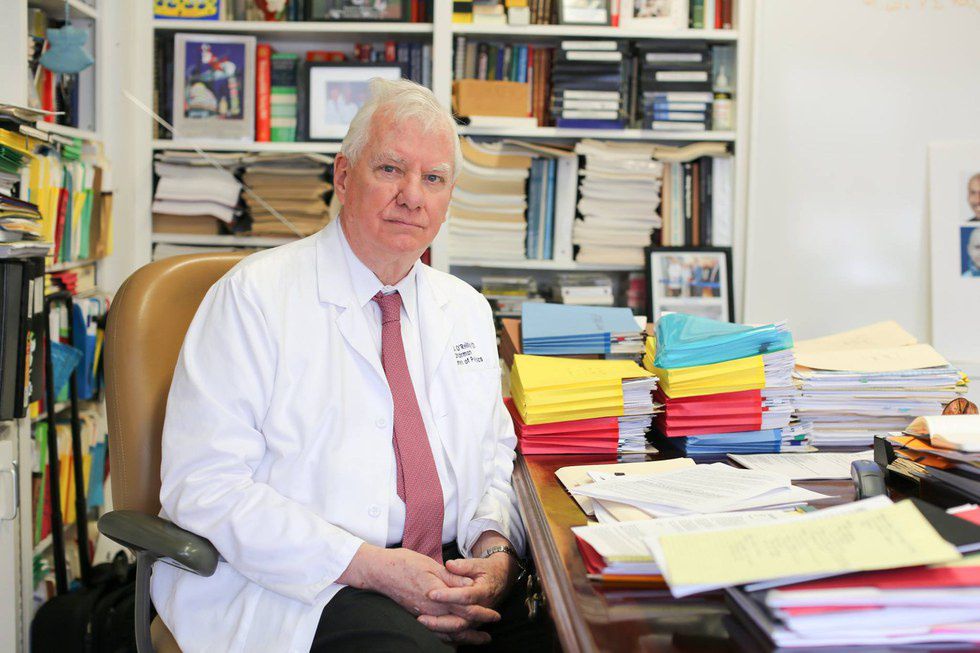

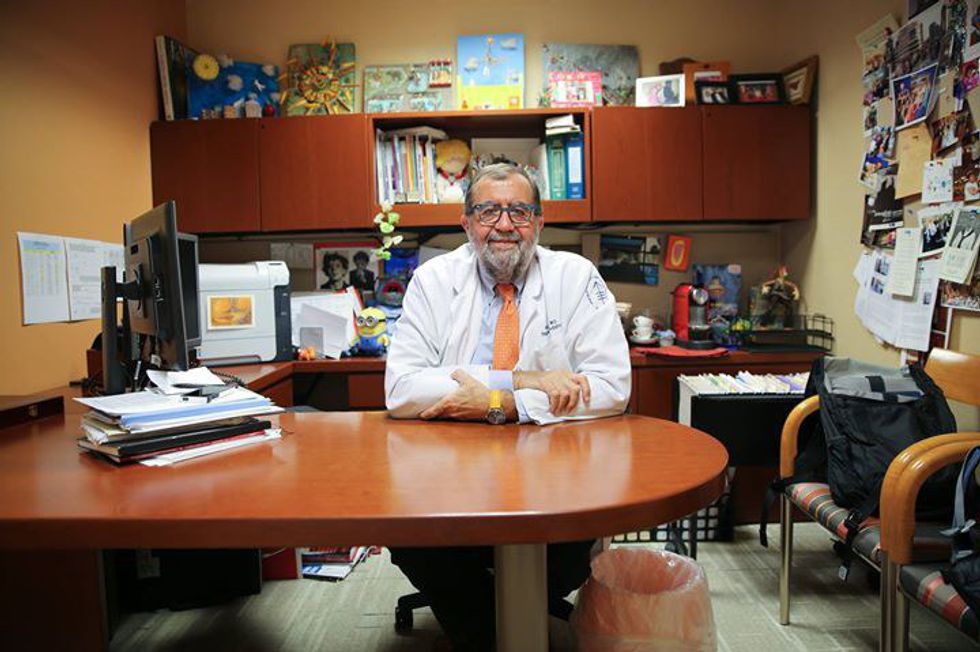



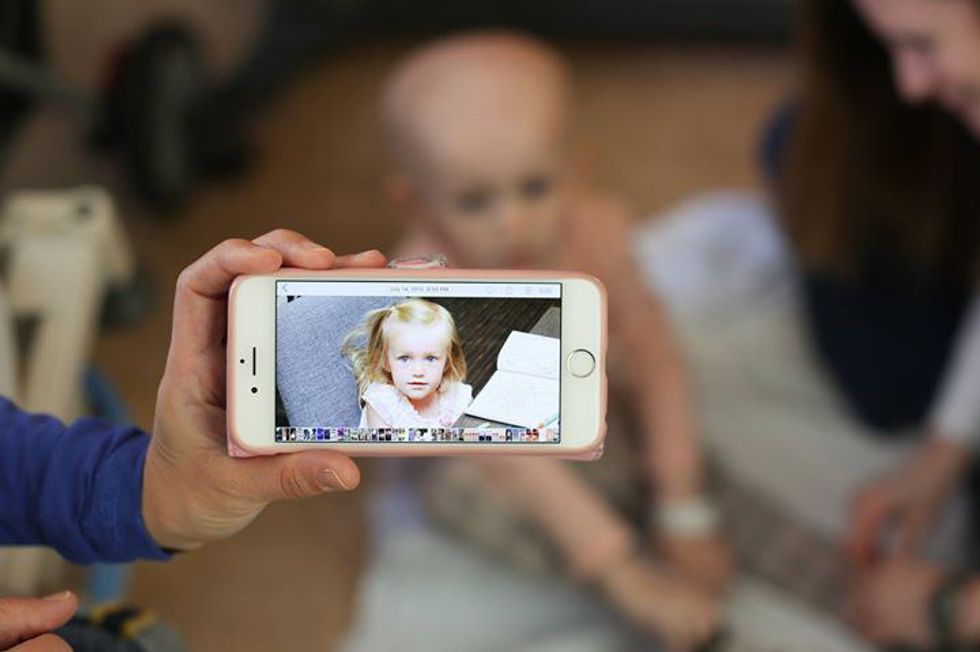
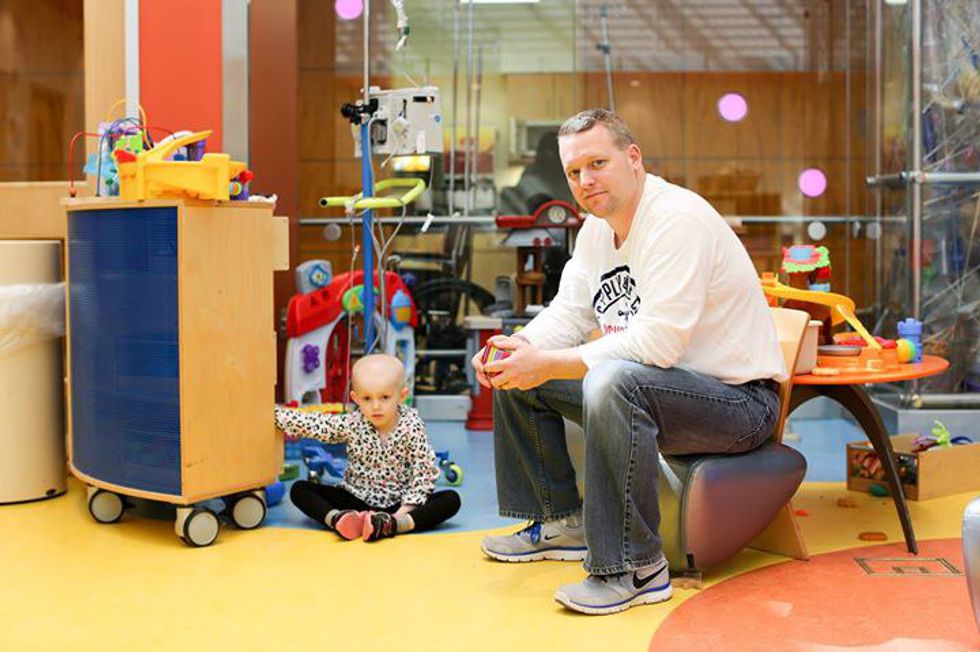


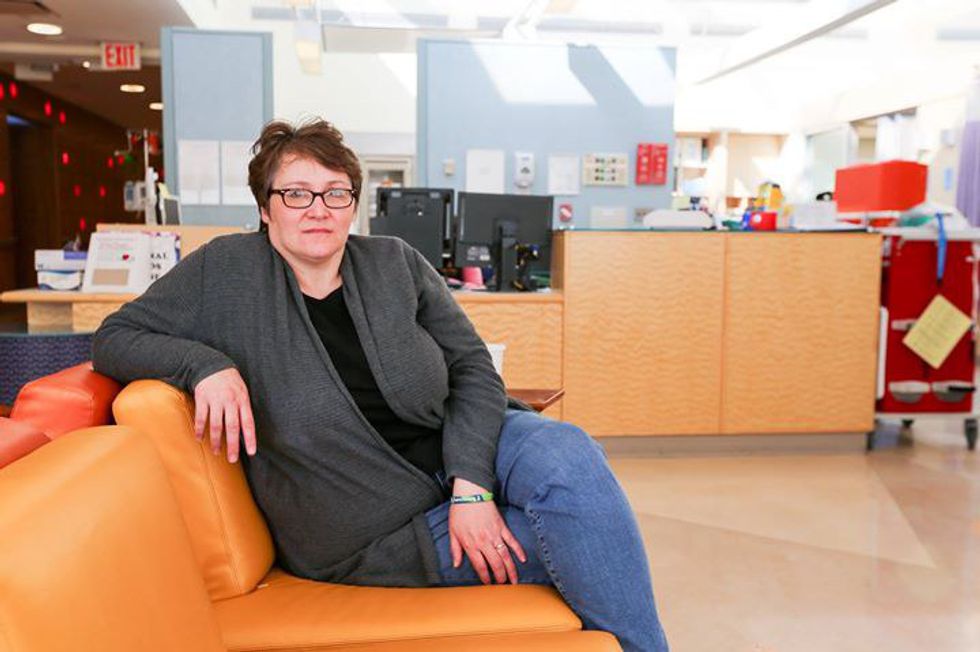

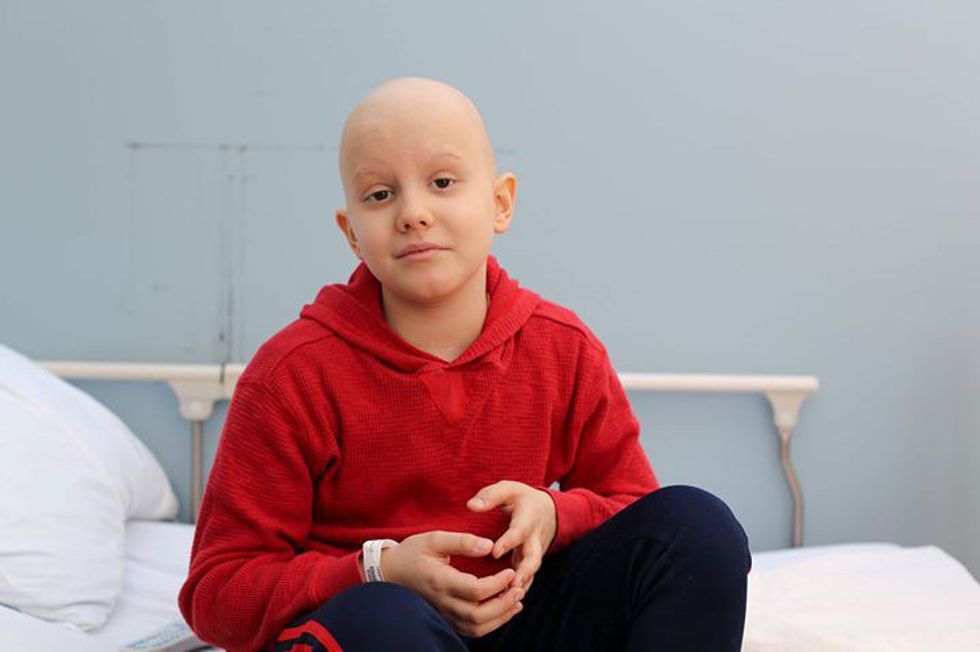

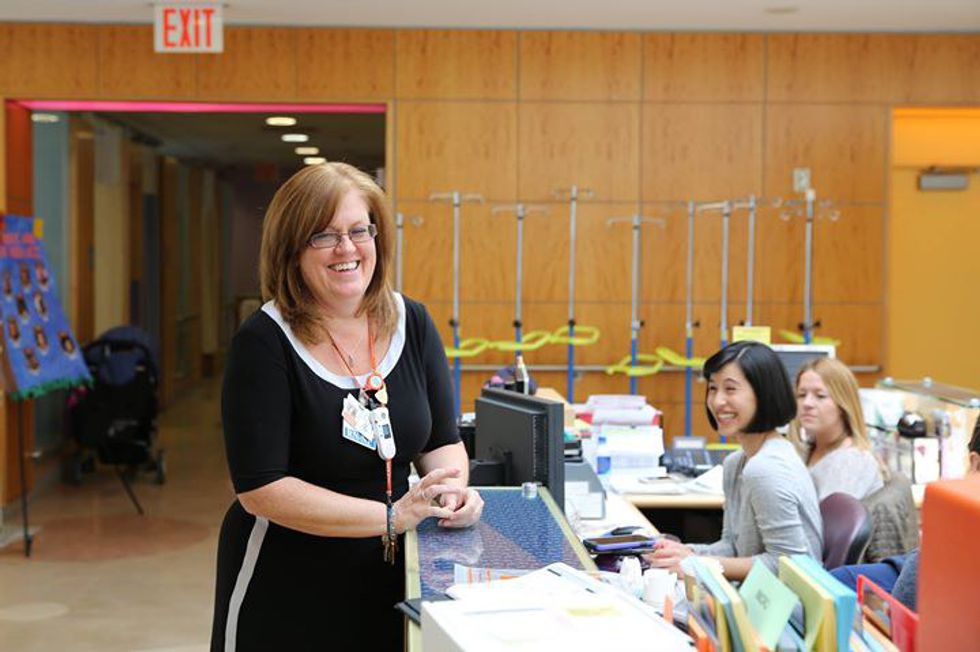



 people sitting on chair in front of computer
people sitting on chair in front of computer



 all stars lol GIF by Lifetime
all stars lol GIF by Lifetime two women talking while looking at laptop computerPhoto by
two women talking while looking at laptop computerPhoto by  shallow focus photography of two boys doing wacky facesPhoto by
shallow focus photography of two boys doing wacky facesPhoto by  happy birthday balloons with happy birthday textPhoto by
happy birthday balloons with happy birthday textPhoto by  itty-bitty living space." | The Genie shows Aladdin how… | Flickr
itty-bitty living space." | The Genie shows Aladdin how… | Flickr shallow focus photography of dog and catPhoto by
shallow focus photography of dog and catPhoto by  yellow Volkswagen van on roadPhoto by
yellow Volkswagen van on roadPhoto by  orange i have a crush on you neon light signagePhoto by
orange i have a crush on you neon light signagePhoto by  5 Tattoos Artist That Will Make You Want A Tattoo
5 Tattoos Artist That Will Make You Want A Tattoo woman biting pencil while sitting on chair in front of computer during daytimePhoto by
woman biting pencil while sitting on chair in front of computer during daytimePhoto by  a scrabbled wooden block spelling the word prizePhoto by
a scrabbled wooden block spelling the word prizePhoto by 
 StableDiffusion
StableDiffusion
 StableDiffusion
StableDiffusion
 StableDiffusion
StableDiffusion

 women sitting on rock near body of waterPhoto by
women sitting on rock near body of waterPhoto by 
 Photo by
Photo by  Photo by
Photo by  Photo by
Photo by  Photo by
Photo by  Photo by
Photo by  Photo by
Photo by  Photo by
Photo by  Photo by
Photo by  Photo by
Photo by  Photo by
Photo by 








